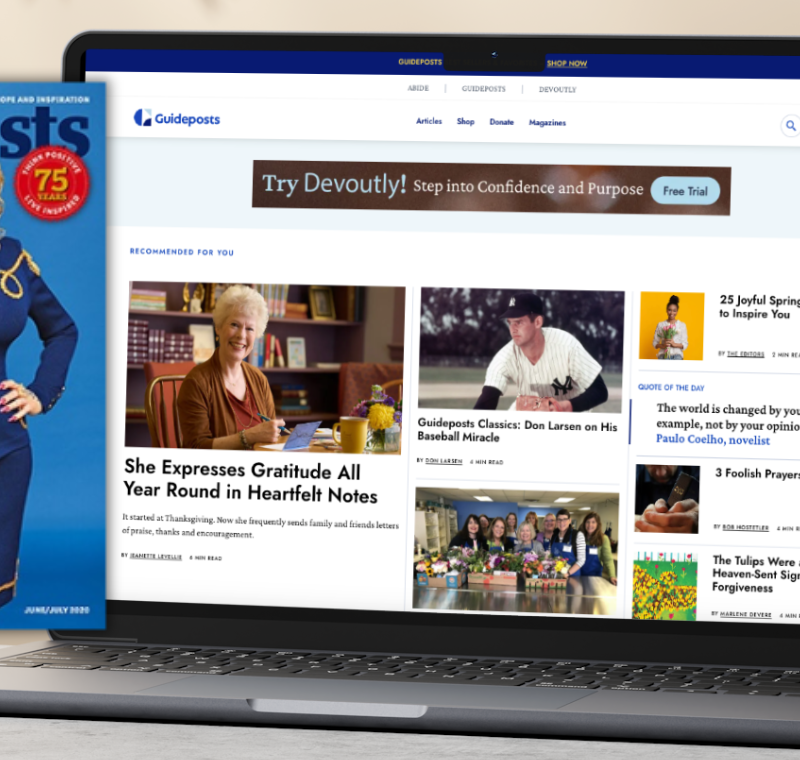Axel Springer’s head of technology and data on cultural and digital transformation

Dr. Stephanie Caspar is the woman charged with managing the company’s data and technology division, and in a sign of the changing nature of publishing, she was recently appointed to the company’s board – the first time someone with the title head of technology and data has been given that status.
At DIS 2019 Stephanie will outline Axel Springer’s digital strategy. Here she talks about the company’s ever growing use of data, how it is not intimidated by the Facebook/Google duopoly and its approach to acquisitions.
***Book now at our standard rate for DIS 2019, taking place on 25 to 26 March in Berlin. Delegate rates will increase by €200 after 12 March. Sign up here***
Tell us a bit about yourself? What was your career path? How did you end up at Axel Springer?
Before I joined Axel Springer in 2013, I worked first at McKinsey and then mainly for digital-only companies such as eBay, ImmobilienScout and mirapodo, an eCommerce startup which I founded together with the Otto group.
I was always interested in the factors that benefit new technologies and their adoption by users and even did some research around it. So, when a leadership position at Axel Springer was offered to me in 2012, I could not stop thinking about what digitisation means for media consumption and journalism. The idea of matching my interest and experience in digitisation with the fascinating media industry caught me. So, here I am.
You were recently appointed head of technology and data. Interestingly you were appointed to the board level and this is the first time that someone with that job title has been added to the board. What do you think this says about the company’s strategy and direction? How successful do you think Axel Springer’s digital transition has been? What are the key challenges you face?
Already in the early 2000s, Axel Springer was clear on having a strong digital strategy in place. We acquired digital businesses with a good strategic fit, a strong business model and entrepreneurial teams. In parallel, we made sure to transform our existing businesses, launched digital products, hired new talent, built software etc.. As a result, we have delivered very good numbers and outshine most of our peers on innovation, speed, analytics and technology. Today, 80 percent of our EBITDA is coming from our digital businesses.
A key challenge for media companies is their handling of technological change. How people use media is very much determined by technology. We need to spot opportunities how our business models can grow with the help of technology. At the same time, we also monitor technological change that could put our current business models at risk. That is why we continually build up competence and talent for the right handling of technological innovations.
I guess it was only a matter of time until on the top level the term “technology” appeared, and rightfully so. Because it also underlines that tech is on eye-level with our other functions and not a service provider which has no say in the overall strategy and its execution.
Since the start of 2019, I am also responsible for our national news media business (BILD, WELT). Here, our priorities are set on making high-quality and independent digital journalism a financial cornerstone with the help of technology as well as stabilizing our print business.
Can you give me examples of how data has become central to Axel Springer’s approach?
All our digital businesses know how to collect and use data in order to make better products, deliver better advertising and produce more relevant content. Nice examples are e.g. new data products in advertising such as B2B-targeting or higher conversions in paid content through personalisation of our content.
In addition, we want to find use cases that benefit more units through a joint approach. For example, we want to support the customer journey across the units of Axel Springer better in order to guide users easily back to an interesting job posting at StepStone or a relevant item at idealo.
Do you think that your background as an entrepreneur (Mirapodo) has been significant in the role you have played at Axel Springer?
My entrepreneurial experience has taught me many lessons. Most importantly, that entrepreneurial success depends on whether your customers like your product or your service. Customer-centricity must become part of an entrepreneur’s DNA and product and UX are still my favorite areas.
Moreover, in a startup resources are limited and you need to act quickly. I have learned that after weighing pros and cons and gathering all the data, every decision based on that is better than no decision. And I admire the power and competence of cross-functional teams and thus always have pushed for a different culture: more transparency, no silos, modern leadership.
Axel Springer isn’t afraid of taking on the duopoly (Google/Facebook) – for example the content management tool you shared with other publishers. How do you think that the tech giants will impact on publishing in the future? Is their influence starting to wane?
You are right, we are not afraid. Our main interest is always to secure our relationship with the users and create a playing field that allows independent journalism.
It is difficult to foresee how Google and Facebook, but also Amazon will evolve over time. I think their prognosis varies, with Amazon being the most dominant player in the future, in my eyes.
I personally think that publishers worldwide are making progress in strengthening our independence and that the need and appreciation for trustworthy information increases, which is good for us. It would be even easier if publishers worked together more in creating alternatives for tech tools and when it comes to define the rule set with which we operate.
Also do you think we will see more collaboration among traditional publishers in technology/data etc as they seek to wrest influence away from the tech/social platforms?
I definitely hope so. That would be a big step forward.
Blockchain provides both a challenge and an opportunity for publishers, how will Axel Springer embrace it?
We are closely looking at various application areas within our units and assess how blockchain might change the model or create new opportunities. Recently, we have successfully implemented blockchain at Immowelt and there is more to come. But it is still in an early phase with lots of things to try out and to learn.
Your plug and play startup accelerator has been very successful. How have you gone about integrating the companies you acquire/work with within Axel Springer. Do you change the culture of the startup to fit with the main company? Or is it the other way round?
We never wanted to change the culture of a startup because that would be downright stupid. Most of our acquisitions did so well because we offered support, but we never pretended to know the business or the culture better than the founders. I think that by working together there was stimulation from both sides. And especially for Axel Springer that was more than welcome. We would not be that far along regarding our culture without the good examples from the founders and management teams of the digital companies.
Cultural transformation still is one of the most important topics for Axel Springer. Not only to be attractive to the best talent out there but also because it is necessary to deliver great results. We encourage an informal and emphatic style of interaction between employees, teams and units without hierarchies standing in the way of success.
 |
***Book now at our standard rate for DIS 2019, taking place on 25 to 26 March in Berlin. Delegate rates will increase by €200 after 12 March. Sign up here***
More like this
Nancy Spears, CEO of genconnectU, on when and how to pivot
NYT’s chief technology officer on how the newspaper harnesses technology to innovate
Rob Ristagno, founder and CEO of Sterling Woods, on the power of membership programmes
SeeBoundless’ Steve Johnson on exploring the potential of immersive technology
Heather Bryant of Project Facet on why newsrooms need to collaborate more








